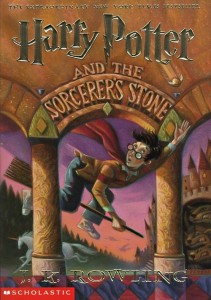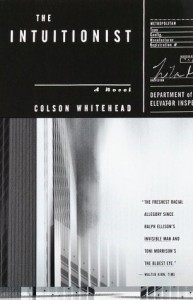It is unclear at the outset as to whether Lila Mae Watson is half-black, or as to whether her skin tone enables her to obtain a greater form of acceptance from her white colleagues, or to “pass.” Colson Whitehead chooses to focus marginally on Lila Mae’s relations with her father, who was black and who taught her “white folks can turn on you any minute,” but little mention is made of her mother (Whitehead 23). Although it is made clear that they occupied the same house, when Lila Mae recalls her elevator repairman father showing her and her mother his uniform, it is never made clear as to whether her mother might have been half-black. Aesthetically, Lila Mae exemplifies a “mixed-race” paradigm by her acceptance within a political minority, “the Intuitionists.” Within this political minority, she holds the unique and isolated status as the only black woman “Intuitionist.”
Watson finds herself within a racial identity equation of James Fulton and Pompey, both African American characters who choose to “pass” within white society, although Fulton’s identity is not made clear until well into the novel’s climax. As such, Lila Mae leads a lonely existence in the dark, with few African American role models other than Pompey, who is a conformist, and who appeases the white community, because success as an elevator inspector will ensure a better life for his family. Lila Mae is more determined and more of an individual, even if she has the capacity to be self-centered. She remains focused in the face of obstacles, and openly questions her culpability in the failed elevator inspection, rightfully insistent that there is something more to this situation and embarking on a “quest” to uncover the details in relation to the accident, and, in effect, finds herself discovering more about her own racial identity in the process. Effectively, Colson Whitehead inserts Lila Mae within the context of one of the oldest literary traditions, the “Quest” narrative, a narrative also ascribed to Danny in Steinbeck’s Tortilla Flat and Lila Mae’s literary ancestor, Janie Mae Crawford, in Hurston’s Their Eyes Were Watching God.
On this “quest,” Lila Mae is undeterred and un-intimidated when thugs invade her apartment, when she uncovers the deception of Natchez’s, and certainly when Chancre’s cohorts kidnap her. Still, Watson is compliant to a degree. She calmly accepts her Inspectors Academy room, a converted janitor’s closet. She is excruciatingly polite, even when under pressure, and she dresses conservatively and neatly, clearly invested in not doing anything to offend the sensibilities of a predominately white environment, and fully aware of the significance of her role as a black woman elevator inspector. Like Conrad’s Jewel in Lord Jim, Lila Mae is objectified by those around her; but while Jewel is objectified in a conventional sense, Lila Mae is utilized shamelessly by the Intuitionists for political gain, as proof of their diverse credentials, in contrast with the more conservative Empiricists. Lila Mae is an invaluable political tool as the only female, black elevator inspector, who just happens to be an Intuitionist. As such, whether or not she is willing to admit it or assume kinship with Pompey, she, in effect, is “passing” to a degree, as well.This is where her resemblance to James Fulton, the figurative father of Intuitionism, is most crucial. Both Lila Mae and James Fulton emerge as essential to the novel’s message, and are intrinsically linked to the novel’s theme of social advancement in the context of identity politics. Both hail from a period in which the only African Americans allowed in the department store were employees, although Fulton had more direct experience. James Fulton, a light-skinned black man, plagued by the necessity of “passing” racially, singles out Lila Mae Watson out in his private journals for a significant role within the Intuitionists. This leads one to wonder exactly to what degree he empathized with Lila Mae Watson. “He notices he has written Lila Mae is the one in the margins of his notebook,” Whitehead writes. “That’s right… She doesn’t know what she’s in for, he thinks, dismissing her from his mind” (Whitehead 253).






